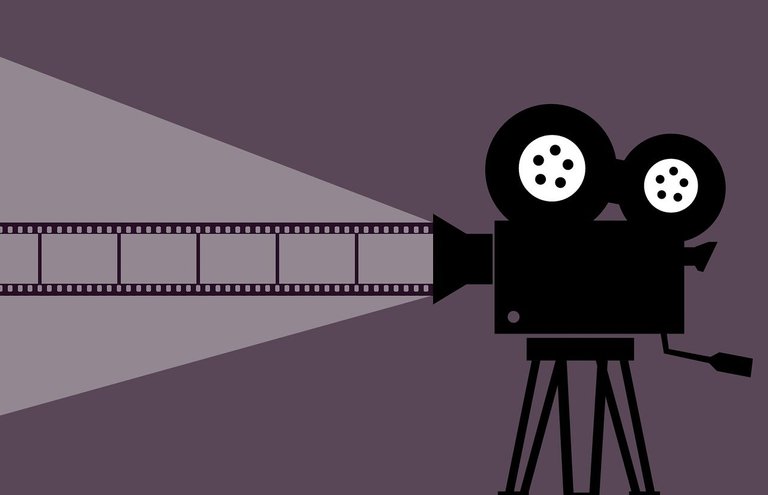The Fabelmans, Steven Spielberg, 2022
Cinema and life, like the trains that made the history of the seventh art, run on two tracks and it doesn't happen for too long that the two don't cross. In fact, the moment of impact arrives, of the tear. Because affection and family love each other but cinema is a drug and addictive. Art rips your head and heart out and leaves you alone.

Yet cinema, making a film, is a construction process that starts from deconstruction, a waste operation to refine and the pain and the truth are in the cut parts. Here who narrates, who reads, who tells, who observes, who looks 'really sees' and what happens in the background is more important than what is in the foreground. In the balance between lights and shadows, in the contrast of the projection, in the trick of the mind that puts the frames together, animating them with the illusion of movement, everyone sees what they want and above all what they are looking for.
Where life creaks and destabilizes, cinema serves to keep everything under control, re-establishes a balance, albeit temporary, albeit built with wealth and skill. But it's not just a job, The Fabelmans is not only the surname of a Jewish family across the ocean, in America, after World War II but above all the "man of fairy tales" who was born and grew up in a divided nucleus between scientists and artists, between reason and feeling, between two horizons, one below and one above.
‘If the horizon is below, it is interesting, if it is above, it is interesting; if it's in the middle it's shit': this is a golden rule that applies as much to shots, as to life that makes sense in the high and low peaks of heartbeats and breaths and dies in the middle and continuous lines.
Cinema lies in the climax, in the power of wonder that resides in moments of apnea, when the breath fails and the energy is all-encompassing.
The Fabelmans is the history of cinema and its torments in one hundred and fifty-one minutes (the first five are the highest and most precise synthesis of the technique of cinematic language).
The fairy tale man is its director: Steven Spielberg.
Anyone who doesn't love art and cinema cannot understand how much truth, how much joy, how much pain and how much life there is 'behind the scenes' and this film will probably seem just a good film or so. But this movie is amazing.
ITA
Cinema e vita, come i treni che hanno fatto la storia della settima arte, corrono su due binari e non troppo a lungo succede che i due non si incrocino. Arriva infatti il momento dell’impatto, dello strappo. Perché gli affetti, la famiglia si amano ma il cinema è una droga e crea dipendenza. L’arte ti strappa la testa e il cuore e ti lascia solo.
Eppure il cinema, fare un film, è un processo di costruzione che parte dalla decostruzione, un’operazione di scarto per raffinare e il dolore e la verità stanno nelle parti tagliate. Ecco che chi narra, chi legge, chi racconta, chi osserva, chi guarda ‘vede davvero’ e quello che succede sullo sfondo è più importante di quello che sta in primo piano. Nell’equilibrio tra le luci e le ombre, nel contrasto della proiezione, nello scherzo della mente che mette insieme i fotogrammi, animandoli con l’illusione del movimento, ognuno ci vede quello che vuole e soprattutto quello che sta cercando.
Laddove la vita scricchiola e destabilizza, il cinema serve a tenere tutto sotto controllo, ristabilisce un equilibrio, sebbene temporaneo, sebbene costruito con dovizia e mestiere. Ma non solo di mestiere si tratta, The Fabelmans non è solo il cognome di una famiglia ebrea al di là dell’Oceano, in America, nel secondo dopoguerra ma è soprattutto l’”uomo delle favole” che nasce e cresce in un nucleo diviso tra scienziati e artisti, tra ragione e sentimento, tra due orizzonti, uno in basso e uno in alto.
‘Se l’orizzonte è in basso, è interessante, se è in cima, è interessante; se è nel mezzo è una merda’: questa è una regola d’oro che vale tanto per le inquadrature, quanto per la vita che ha senso nei picchi alti e bassi dei battiti cardiaci e dei respiri e muore nelle linee mediane e continue.
Il cinema sta nel climax, nel potere della meraviglia che risiede nei momenti di apnea, quando il respiro manca e l’energia è totalizzante.
The Fabelmans è la storia del cinema e dei suoi tormenti in centocinquantuno minuti (i primi cinque sono la sintesi più alta e precisa della tecnica del linguaggio cinematografico).
L’uomo delle favole è il suo regista: Steven Spielberg.
Chi non ama l’arte e il cinema non può capire quanta verità, quanta gioia, quanto dolore e quanta vita ci siano ‘dietro le quinte’ e probabilmente questo film sembrerà solo un bel film o poco più. E invece questo film è meraviglia.
@tipu curate
Upvoted 👌 (Mana: 27/57) Liquid rewards.